| MONTHLY
NEWS |

|
|
Ibero-American
Symposium on Palliative Care
Experts in Palliative
Care address the great problem that exists worldwide due to the lack of integration of health
policies.
On October 20, the
Ibero-American Symposium on Palliative Care was held with the participation of Dr. Fernando Fabo
L.C .; Dean of the Faculty of Bioethics and Dr. Adriana Temples, associate researcher at the
Faculty of Bioethics, who gave the welcomed words.
|
 |
|
New index for the
Medicine & Ethics Journal
The Sherpa Romeo database
houses periodical and peer-reviewed scientific publications of high-quality standards.
The journal Medicine and
Ethics of the Faculty of Bioethics has been indexed in the Sherpa Romeo database, which houses
periodic and peer-reviewed scientific publications of high-quality standards and brings together
rigorously evaluated international publications.
|

|
|
Session of
"Querida Amazonia" analyzes the Encyclical Fratelli Tutti in the first year of its
publication
The Faculty of Bioethics
had three specialists to talk about the challenges of global bioethics for the construction of
fraternity and social friendship.
During the 13th session
of Querida Amazonia of our Faculty of Bioethics: "Echoes and resonances of the Fratelli Tutti
in the first year of its publication", encyclical published by Pope Francis in October 2020
in Assisi, we had a triple participation of experts.
|
| MONTHLY
EVENTS |

|
|
Check the upcoming events:
Calendar
|
| ARTICLE MEDICINE
AND ETHICS JOURNAL |
 |
|
Biomedical research on
human subjects from the perspective of public ethics: the social value of research.
Biomedical research on
human subjects in Middle-Low and LowIncome Countries (LMICs or LICs) has aroused the interest of
bioethics in how to achieve an equitable distribution of benefits. Questions of justice have been
addressed under the concept of «reasonable availability» or «fair benefit sharing». However, the
inadequacy of this approach lies in the fact that public issues have been addressed from the
bioethical principles of beneficence, non-maleficence and justice. Recently, the subject has been
approached from the standpoint of social justice, but the approach of ethics referring to
populations or public ethics is apending subject to be studied in greater depth. This paper aims
to point out the importance of this complementary approach. It is intended, from public ethics, to
see the need to focus on the social value of the knowledge generated, and to offer some guiding
criteria to be detected by Research Ethics Committees.
|
| Resources and
latest publications in Bioethics |
 |
|
CONBIOETHICS
RESOURCES: October catalog 2021
|
| Meet our
researchers from the Faculty! |
 |
|
Who is Prof. Henk Ten
Have?
- Dr. Henk ten Have is physician and philosopher graduated from
Leiden University in the Netherlands after which he was junior researcher in the Pathology
Laboratory obtaining his PhD in medicine (1978).
- He worked for some time as medical practitioner at the Municipal
Health Services in Rotterdam while obtaining his PhD in philosophy (1983). He was lucky to
find a job in the department of medical ethics at the newly established University of Limburg
at Maastricht where he was professor of philosophy (1982-1991).
- Next, he served as professor of medical ethics and head of the
department of ethics, philosophy and history of medicine at the Faculty of Medical Sciences of
the Catholic University of Nijmegen. In 2003, he became director of the Division of Ethics of
Science and Technology of UNESCO in Paris, France.
- In 2010, he was appointed as director of the Center of Healthcare
Ethics of Duquesne University at Pittsburgh, USA. From 2011 to 2019, he was also adjunct
professor at King Saud bin Abdulaziz University for Health Sciences in Ryadh, Saudi Arabia. In
2019, he retired in Pittsburgh where he became professor emeritus. In 2021, he was appointed
as research professor at Universidad Anahuac Mexico.
Bioethics
for prof. ten Have is:
A Critical philosophical discourse
on the ethical dimensions of health, healthcare and medicine. Nowadays, this discourse is
necessarily global for two reasons.
- Many ethical challenges today are associated with processes of
globalization, and they are related to the social, economic, and political contexts of
medicine and healthcare. Bioethics therefore can no longer only focus on individual issues of
patient care (with the traditional moral queries such as end-of-life decision making and the
application of technologies) but has to take into account the structural conditions that
affect global health and that give rise to vulnerabilities and inequities.
- The need for a perspective of global bioethics is evident in the
current pandemic which besides many problems of individual care, raises issues of solidarity,
justice, marginalization, discrimination, and protection of the environment.
The research
project that he has enjoyed the most has been the further elaboration of the
concept of global bioethics.
- This notion has
been developed in three books, starting with Global bioethics (2016) which provides an
introduction, elaborated in Vulnerability (2016) which examines the social dimensions of global
bioethics, and Wounded planet (2019), discussing its environmental dimensions.
- Next, I have
focused on a critique of mainstream bioethics, exploring the images and metaphors that usually
dominate ethical thinking, showing how alternative discourses may be presented in global
bioethics. This has resulted in two books:
- Bioethics,
healthcare and the soul (2021, together with Renzo Pegoraro)
- Bizarre
Bioethics – Ghosts, monsters and pilgrims (2022)
Recently, I
have been working on the perspective of global bioethics on the Covid-19 pandemic (this book
will be published in 2022).
|
|
Openings:
|
|
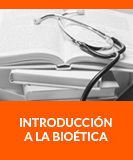   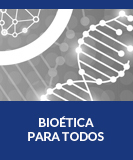 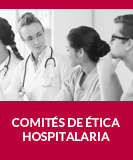 
|
|
|
| Posgraduate |
|
  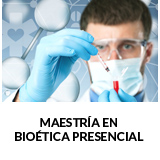 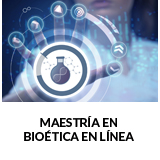 
|
More information:
Facultad de Bioética
MPSS
Marcela Garibay
López
marcela.garibay@anahuac.mx
   Contáctanos
Contáctanos
 Contact us
Contact us
|










 Contáctanos
Contáctanos
 Contact us
Contact us











